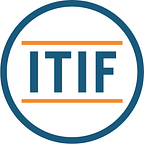From Plants to Patients: How Intellectual Property Propelled La-Africa Soother’s Natural Approach to Pain Relief
By Natalie Khoo
This post is one of a series in the #Innovate4Health policy research initiative. #Innovate4Health is a joint research project by the University of Akron IP Center (UAIP), the Information Technology & Innovation Foundation (ITIF), and the Geneva Network. This project highlights how intellectual-property-driven innovation can address global health challenges. If you have questions, comments, or a suggestion for a story we should highlight, we’d love to hear from you. Please contact UAIP Research Fellow Douglas Park at dpark@uakron.edu for more information.
It is no secret that sports and physical activity offer a myriad of health benefits for both physical and mental well-being. From shielding against heart attacks to alleviating stress, the positive effects of engaging in physical activity cannot be overstated. However, sports also come with an inherent risk of musculoskeletal injuries, particularly joint injuries and post-traumatic arthritis, a condition that causes stiffness and pain around joints. This risk is particularly pronounced among athletes and sports and fitness enthusiasts, who subject their joints to significant wear and tear compared to the average individual.
Post-traumatic arthritis impacts more than 5 million people every year, accounting for approximately 12 percent of all osteoarthritis cases. This condition occurs most commonly in the knees, hips, lower back, neck, small joints of the fingers, and the base of the thumb. Despite rapid advances in biomedical engineering, addressing bone and cartilage repair in joints after an injury remains a great challenge in the field of regenerative medicine. This challenge has always been of particular interest to Professor Keolebogile Shirley Motaung, Director of Technology Transfer and Innovation at Durban University of Technology in South Africa. Witnessing her mother’s struggle with the chronic pain associated with osteoarthritis and the weaknesses of the South African health care system to provide adequate care, Professor Motaung was determined to find a way to alleviate the suffering that patients with musculoskeletal injuries have to endure.
In 2015, Professor Motaung founded Global Health Biotech (Pty) Ltd, a spin-off company based in South Africa. Drawing upon South Africa’s rich biodiversity and long history of indigenous communities’ use of medicinal plants to treat various kinds of illnesses, the team at Global Health Biotech Pty Ltd created La-Africa Soother — an innovative plant-based anti-inflammatory cream made from African teak, a tree of woodlands and savannahs, and the pineapple lily, a short, showy flower. These plants contain compounds that can activate body cells, promote bone formation, and facilitate wound healing. When combined with stem cells, they guide the growth of new tissues through a process known as “scaffolding”.
In low and middle-income communities all around the world, financial and structural barriers often prohibit individuals from accessing essential bone and cartilage treatments such as bone morphogenic proteins due to high costs, and South Africa is no exception. La-Africa Soother emerges as a low-cost, safe, and non-invasive alternative treatment for musculoskeletal injuries. Unlike other creams targeting muscle aches and joint pains, La-Africa Soother is the first product of its kind aimed at preventative care. Applying La-Africa Soother before and after engaging in physical activity can reduce the likelihood of post-exercise muscle aches. Since this innovative invention is a plant-based anti-inflammatory cream, it also has restorative abilities unique to the market. Due to its plant-derived medicinal composition, La-Africa Soother is able to promote the development of collagen type II, the main structural component of the cartilage tissue in joints.
Intellectual property rights have played an instrumental role in the success of Global Health Biotech (Pty) Ltd. According to CEO Motaung, “From the outset, it was clear that intellectual property would be central to Global Health Biotech’s future”, highlighting the foundational importance of safeguarding innovations through patents and other forms of intellectual property to drive innovation. To date, Global Health Biotech (Pty) Ltd has secured patents from the European Patent Office (80298/Munich, Germany: 18836901.3–112) and South Africa (2017/08330). As a company dedicated to providing high-quality and affordable plant-based products, La-Africa Soother has helped individuals suffering from chronic joint and muscle pain associated with musculoskeletal injuries in areas with inadequate access to essential medical products. Global Health Biotech (Pty) Ltd has demonstrated the importance of effective intellectual property rights and trademark protection in the development and commercialization of its own brand and services.
Additionally, intellectual property rights empower innovators to increase their impact by partnering with local research universities. Building on this success, Professor Motaung is currently working to include intellectual property training in the curricula of the university’s science degrees. By doing so, she aims to cultivate a new generation of innovators and business leaders, equipping them with the tools to bring their ideas to market successfully. In addition, she advocates for universities to not just hold onto their intellectual property rights but to actively “license those patented technologies,” ensuring that valuable innovations are not left dormant, but are instead utilized to benefit society and contribute to economic growth.
Since the launch of La-Africa Soother, Global Health Biotech (Pty) Ltd, under the leadership of Professor Motaung, has garnered numerous awards, including the Strategic African Women in Leadership (SAWIL) Trailblazers Award for 2022/2023, and was honored as top innovator in the Chancellor’s Awards under Impactful: Collaborative Entrepreneurial Project between Technology Transfer & Innovation — just to name a few. Also, the World Intellectual Property Organization (WIPO) has acknowledged the value of the innovation, featuring it in the WIPO Development and Intellectual Property Committee project on Increasing the Role of Women in Innovation and Entrepreneurship, Encouraging Women in Developing Countries to Use the Intellectual Property System.
La-Africa Soother’s story has illustrated how intellectual property can transform innovative ideas into life-changing solutions in the health care field. It is a testament to the important role intellectual property and collaborative partnership play in driving innovation forward, especially in lower-income settings.
